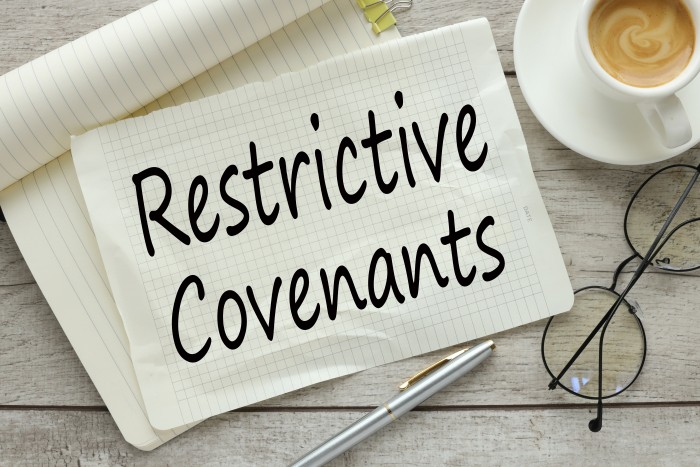
How to Get Around Restrictive Covenants Employment
Understanding Restrictive Covenants
When drafting employment contracts, many employers in the UK include restrictive covenants. These are clauses that can, in certain situations, restrict an employee’s activities after they leave a company. But why are these covenants so crucial?
Firstly, they play a significant role in safeguarding a business’s vital interests. It’s common knowledge that employees, particularly those in high-ranking or sensitive roles, gain access to a plethora of confidential information. Naturally, no employer wants this information shared with competitors or used to start a rival business.
Definition and Importance of Restrictive Covenants
So, what exactly is a restrictive covenant? At its core, it’s a clause in the employment contract which aims to protect a business’s interests by restricting the actions of an employee, typically post-employment. Think of it as an assurance.
- Protection against sharing trade secrets or confidential information
- Prevention of an ex-employee soliciting or dealing with former clients
- Ensuring competitive edges remain intact
- Maintaining brand reputation and client trust
For employers, knowing the essence of restrictive covenants ensures they draft contracts that are both fair and enforceable.
Key Types of Restrictive Covenants in Employment
As an employment law specialist, I have seen various restrictive covenants. Though diverse, they mainly fall under a few key categories. It’s paramount for employers to recognise these categories to utilise them effectively.
Non-compete Clauses
A common covenant in the UK, the non-compete clause, prevents an ex-employee from starting or joining a competing business for a specified period and within a certain geographical area.
Non-solicitation Agreements
This restricts former employees from poaching clients, suppliers or employees from their previous company. It’s crucial when considering how to get around restrictive covenants employment-focused, as it ensures business continuity and client loyalty.
Non-dealing Covenants
Even if a former employee doesn’t actively solicit clients, they might still end up dealing with them. This covenant prevents such occurrences, preserving the client base of the original company.
Confidentiality Clauses
One of the most common types, this ensures that employees don’t disclose or misuse confidential information, both during and after their tenure.
Incorporating these covenants requires an understanding of both business needs and legal boundaries. Carefully crafted clauses not only protect company interests but also stand up in court if challenged.
Legality and Enforceability: When are they Binding?
When incorporating restrictive covenants into employment contracts, employers often grapple with a pressing question: Are these covenants enforceable? It’s not just about adding a clause but ensuring that, if challenged, it stands firm in a court of law.
Criteria for a Legally Binding Restrictive Covenant
For any covenant to be legally binding, it must serve a legitimate business interest and not be more restrictive than necessary. This is paramount when discussing restrictive covenants in employment.
- Specificity: Covenants need clear definitions and boundaries. Vague terms can render them unenforceable.
- Duration: The time frame should be reasonable. Long durations can be seen as punitive.
- Geographical Limit: Overly broad geographical restrictions can be deemed unreasonable.
- Business Interest: There must be a clear and valid business interest at stake.
- Balance: Covenants shouldn’t overly burden the employee’s ability to earn a livelihood.
The Concept of Reasonableness and its Implications
Any restrictive covenant’s enforceability boils down to its reasonableness. Courts in the UK tend to favour employees in disputes, primarily if a covenant appears too oppressive or lacks clear justification. As an employer, ensuring that your covenants strike a balance between protecting your interests without being excessively prohibitive is critical.
Furthermore, it’s worth noting that if one part of a restrictive covenant is found to be unenforceable, it might invalidate the entire clause, not just the problematic section. Therefore, meticulous drafting, regular reviews, and seeking expert legal advice are essential steps in upholding the legitimacy of your employment contracts.
Common Challenges Employers Face
I’ve seen many cases where employers, despite best intentions, find themselves in precarious situations due to oversights or misunderstandings related to their restrictive covenants employment contract clauses.
Misconceptions about Enforceability
One common pitfall is the assumption that just because a restrictive covenant is in a contract, it’s automatically enforceable. This isn’t always the case. The wording, context and application play crucial roles in determining its enforceability.
Overly Broad or Vague Clauses
Attempting to cast a wide net might seem like a good strategy to protect business interests. However, when clauses lack specificity or seem disproportionately broad, they risk being struck down by courts. Precision in wording and scope is vital.
Dealing with Potential Breaches by Former Employees
When suspicions arise that a former employee might be breaching their covenant, addressing it can be delicate. Jumping to conclusions without substantial evidence, or failing to act when there’s a clear breach, both have their consequences.
- Immediate legal counsel: Act promptly but with expert advice.
- Open communication: Before legal action, consider discussing concerns with the ex-employee.
- Gather evidence: Ensure you have concrete proof of any breach.
- Consider mediation: Sometimes, disputes can be settled amicably without court intervention.
- Stay updated: Regularly review and refresh your knowledge about employment law changes.
Ultimately, while restrictive covenants serve as protective measures for businesses, they are not without their complexities. Being proactive, staying informed and seeking expert guidance are the best strategies to ensure these covenants serve their purpose without causing unintended legal hassles.
Tips for Drafting Effective Restrictive Covenants
Creating robust and enforceable restrictive covenants requires a judicious mix of legal know-how, understanding of business operations and a keen sense of fairness. Drawing from my extensive experience, I’d like to share some tips that can guide employers in crafting effective clauses in their restrictive covenants employment contracts.
Align with Business Objectives
Begin with a clear understanding of what you aim to protect. Whether it’s trade secrets, client relationships, or other proprietary information, your covenant should be directly tied to specific business interests.
Be Reasonable and Fair
Always remember that restrictive covenants should not serve as a means to punish departing employees but to protect legitimate business concerns. The more fair and reasonable your clauses are, the more likely they are to be upheld in court.
Seek Expertise
Employment law is compilicated. Engaging with a specialist can provide insights into writing clauses that are both effective and compliant with current legal standards.
- Regular review: Laws and business needs evolve. Periodically review your covenants for relevance and enforceability.
- Customise: Avoid one-size-fits-all clauses. Tailor covenants based on roles and responsibilities.
- Be transparent: Discuss covenants with prospective employees, ensuring they understand their implications.
- Consistency: Ensure similar roles have consistent covenants to avoid potential disputes or perceptions of bias.
- Exit strategy: When employees depart, revisit their covenants, reminding them of their obligations.
Restrictive covenants, when judiciously implemented, can serve as invaluable tools for businesses to safeguard their interests. With meticulous drafting, grounded in fairness and clarity, employers can ensure that these clauses not only serve their intended purpose but also stand up when tested in legal arenas.
Call John Bloor at EBS Law on 01625 87 4400 if you are an employer and need free Employment Law Advice.

